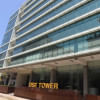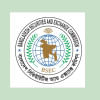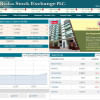Everything that's wrong with our stock market right now

Last month, the HSBC Global Research stated that the floor price put on the Bangladesh stock market is making it an "unimpressive equity market," as the restriction has turned the market illiquid and left a dent in the investors' confidence. To stop the free fall of market indices amid global economic uncertainties, the Bangladesh Securities and Exchange Commission (BSEC) set the floor price of every stock at the end of July last year. Stock prices are not allowed to fall below that.
Two years back, the HSBC Global Research termed our stock market a "hidden gem," considering its huge potential to grow according to the earning projections of listed companies. The multinational bank's research wing had expected more foreign investors to enter the market. Then what problems are plaguing the stock market now? Is the floor price the only reason for putting a dent in people's confidence? Is the confidence crisis a recent event for the market?
Firstly, there are a number of reasons for the confidence crisis, including long-term issues that are increasingly more evident nowadays. Foreign portfolio investors realised the situation earlier, so they started to sell off their stakes in 2018. Over the last five years, they have gradually shrunk their investment in Bangladesh.
The prime reason for this phenomenon is that the central bank did not allow devaluation of the local currency against the US dollar. At the same time, foreign exchange reserves were shown artificially high. The foreign portfolio investors realised that any artificial influence in foreign exchange is not sustainable and hurts investors' confidence. Moreover, investors prefer market-based and gradual adjustment policies.
Another reason for this lack of confidence is sudden change in policies. There are a number of instances where the government intervened in the matters of listed firms, so foreign investments were impacted along with local ones.
Take the case of Titas Gas, for example. Without any prior notice, in 2015, the Bangladesh Energy Regulatory Commission (BERC) cut the fee Titas charges to distribute lines. As a result, the utility company lost more than Tk 3,000 crore in market value over a period of five months. The foreign investors saw huge erosion of their funds and sold their shares. The same kind of intervention was seen in the then largest listed company, Grameenphone, in 2018. The list goes on.
The BSEC itself started to intervene in the market by extending the tenure of mutual funds. When investors were waiting to get their money from the funds, the regulator's decision forced them to wait for another decade. Another example of the BSEC's intervention is setting the floor price.
To keep the stock market artificially high, the BSEC intervened in the price discovery mechanism by setting the floor price for the first time in 2020. Following that, people's investments were stuck in the market till the floor price removal in 2021. The regulator lifted it due to huge criticism from local and foreign investors. People thought that the BSEC had realised this was a wrong move, but the regulator reintroduced the floor price again in 2022, blaming the Russia-Ukraine war for its decision.
Good governance in all the financial markets is key to restoring confidence. Until that faith returns, our stock market will have trouble raising funds.
Meanwhile, rampant manipulation in the market is also eroding confidence. It is a common scenario in the stock market that low-performing or junk stocks are being placed in the top gainers' list or top turnover list. This makes it seem like the junk stocks are promising, and so people rush to buy them despite the high risk, which ultimately makes the market drier for well-performing stocks. The BSEC looks into manipulations but gives light punishment to wrongdoers. As a result, those with ulterior motives are encouraged to game the system.
Lack of good governance is quite common in the listed firms, which is another reason for people losing their faith in the market. Most of the listed firms are run by directors and influence the activities of the companies massively. Many treat the companies as family-run businesses. HSBC called the market a hidden gem mainly based on earning estimates of the listed companies. However, investors do not trust the companies' financials, and therefore the estimates are also not trustworthy to them.
HSBC's projection was based on increasing market capitalisation against the backdrop of the country's striking GDP growth rate. It estimated that the Bangladesh stock market had potential to grow like its Vietnamese and Indian counterparts. However, market capitalisation will only rise if entrepreneurs raise funds from the equity market. Are they doing so?
They are not, because an abundant number of banks are ready to provide adequate finance at very easy conditions. Rather, listing with the bourse will bind the entrepreneurs to come under specific rules and regulations. As bank loans are easier, they have few reasons to go public.
All in all, good governance in all the financial markets is key to restoring confidence. Until that faith returns, our stock market will have trouble raising funds. The central bank will have to force all the banks not to provide long-term loans, so that all the conglomerates come to the market to raise funds. And the stock market regulator has to minimise manipulation by giving exemplary punishment to wrongdoers. Finally, any intervention in the stock and foreign exchange market may not be beneficial.
Ahsan Habib is senior reporter at The Daily Star.
Views expressed in this article are the author's own.
Follow The Daily Star Opinion on Facebook for the latest opinions, commentaries and analyses by experts and professionals. To contribute your article or letter to The Daily Star Opinion, see our guidelines for submission.

 For all latest news, follow The Daily Star's Google News channel.
For all latest news, follow The Daily Star's Google News channel. 











Comments